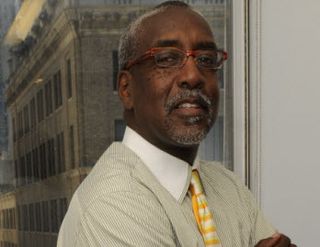Making the Case for HBCUX on Comcast

Comcast has pledged to launch two African-American owned and targeted networks in 2019, bringing to eight the number of multicultural services it will have supported as part of conditions the MSO agreed to in its 2011 acquisition of NBCUniversal.
Throwing its name into the mix for one of the two slots is Washington D.C.-based digital service HBCUX, which focuses on creating programming for and about the 105 historically black colleges and universities around the country. Led by veteran cable executive Curtis Symonds, the network launched as a digital video service in 2014.
Symonds and I spokeabout HBCUX’s linear channel prospects, as well as the void TV HBCUX can fill for quality, entertaining, educational programming targeted to African-American audiences. An edited version of the interview appears below.
MCN: What do you think of your chances to secure one of the two channel slots Comcast is creating for African-American owned-and-operated networks?
Curtis Symonds: Well I’m hoping my chances are good, because the content I’m talking about is revolving around the HBCU community that has received a lot of attention just recently. For example, President Trump recently said that he has to spend more time in the HBCU circle, so the 105 presidents of historically black colleges and universities coming to see President Trump was a major milestone that had not happened in many years. Now, there was a lot of scuttlebutt about the breadth of the conversation they had, but at the end of the day it was it was more about looking at what we need to do to support HBCUs.
Putting a channel together that could help draw exposure to these universities in a light that people have not seen before is a great position to be in and a great way to help more people understand what these universities are trying to do. That’s why I think that my timing is right, because I believe I can bring some meaningful programming to the table that makes people say, “Wow, didn’t know this was going on over at HBCU schools.”
MCN: You were up for one of the first four multicultural channel slots Comcast had committed to launch back in 2012. What prevented you from getting a slot at that time?
CS: I think what prevented me then was that we weren’t financially set as a network, whereas this go-around I have financial backers. At the time, Comcast didn’t want to deal with a channel that didn’t have the financial background to be able to step right into the door and do something. Now I believe I can make it happen.
MCN: Can you reveal your financial backers?
CS: I can’t do that. All I can say is, I have some very good people behind me on this go-around.
MCN: There have been attempts to showcase HBCU life in scripted shows, most recently BET’s The Quad. Do you believe that such shows have provided a reasonable depiction of HBCUs?
CS: I think it paints an often-slanted picture of what’s going on because the one thing that’s being missed in a show like The Quad is that it’s not showing much on the educational side. Everything is tied to some drama, which is what happens on television, but there are ways in which you could have played that to make me as a viewer think a little bit more. They could have played up a little bit of HBCU historical programming within that program for example.
MCN: What are you currently offering from a content perspective on the channel?
CS: We will be offering educational programming that will be considered by the universities. We will be coming up with lifestyle programming that will be a combination of HBCUX and universities-based programming. We will be coming up with a lecture series, and we will reach out to some of the top political people and strategists and educators to participate. Sports will also be a big part of it. We’re hoping to have a great relationship with the conferences from the SWAC to the MEAC to the SIAC and CIAA. ESPN airs a lot of the games, but you’ve got 105 historically black colleges out there, so there’s room.
And then what we hope to try to do is get a lot of people coming out of the woodwork who have produced programming targeted to this audience that can help produce content from comedy to short stories to movies.
MCN: If you’re not successful in getting a channel slot from Comcast, would you consider launching an HBCUX app or an over-the-top service?
CS: In today’s world, I don’t think you can back away from any opportunities for distribution. You would be limiting your mindset if you say I’m not going to do OTT because I have a linear channel. You don’t know what’s going to happen, so you have to play all the games and just see how the chips fall.
Multichannel Newsletter
The smarter way to stay on top of the multichannel video marketplace. Sign up below.
